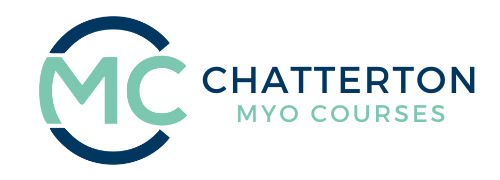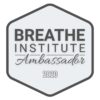What are Speech-Language Pathologists in the Utah School Districts Doing Differently?
For years, Speech-Language Pathologists (SLPs) working in the school setting have been told that it is not within their scope of practice to screen and identify Orofacial Myofunctional Disorders. That Orofacial Myofunctional Disorders do not have a negative impact on a child’s access to their education and have been ignored across the board in the school setting by SLPs. Well, the state of Utah is doing things differently than most other states. Many of the school districts in the state of Utah require their SLPs to identify if the disability determined throughout the evaluation and eligibility process may be related to an Orofacial Myofunctional Disorder. A question is asked specifically on their eligibility criteria paperwork to rule in/rule out the role of an Orofacial Myofunctional Disorder. The problem is that the majority of Utah school based SLPs do not have formal training in Orofacial Myofunctional Disorders from their graduate programs or continuing education courses. How do they ethically identify or screen for an Orofacial Myofunctional Disorder and how can they determine if it has an underlying impact on their students’ access to their education and learning. At Chatterton Myo Courses we have seen a huge outreach from school based SLPs asking for additional training and support. That is why our course School Based Myo was created. To help School Based SLPs in Utah and across the country feel more confident in identifying Orofacial Myofunctional Disorders with supporting resources and screening tools to ethically and professionally answer the question being asked by their districts eligibility forms.
Utah SLPs and SLPs across the country are curious about Orofacial Myofunctional Disorders.
Utah SLPs and SLPs across the country are asking, “Do Orofacial Myofunctional Disorders have a negative impact on a student’s access to their learning in the classroom?” Here are a few reasons that Orofacial Myofunctional Disorders can no longer be ignored in the school setting.
- Orofacial Myofunctional Disorders directly impact the articulatory coordination required to produce specific speech sounds. Without accurately identifying an Orofacial Myofunctional Disorder, a student may never fully progress in speech therapy and master their erred speech sounds. This can cause frustration and low self-esteem in students that continue to see their friends graduate from speech therapy.
- Not identifying Orofacial Myofunctional Disorders will continue to keep caseload numbers too high for school based SLPs. There are specific barriers to progress in mastering speech sounds, such as, anatomical growth, tongue tie, high arched narrow palates, mouth breathing, low tongue posture, poor coordination and low tone.
- Orofacial Myofunctional Disorders are directly related to sleep disordered breathing. Sleep disordered breathing and possible pediatric sleep apnea will inhibit a student’s ability to focus in the classroom. In a research article by Kaemingk, KL et al, collecting data on learning in children and sleep disordered breathing, they found “children with higher rates of sleep-disordered breathing performed lower on tests of ability to learn, to remember, to perform, and tended to have lower IQs overall.”
Like Utah, school districts across the country should require their SLPs be trained in how to identify and screen for Orofacial Myofunctional Disorders in their caseloads. This will help better serve their students, reduce caseload sizes, and understand the underlying cause of articulatory delays and disorders.
Check out the School-Based Myo Program.
At Chatterton Myo Courses, we offer the School-Based Myo program which will provide you with the necessary knowledge and skills to be successful in this field. With our courses, you can gain the confidence and expertise to make improvements in the field. Just follow these steps to make that dream a reality:
- Contact us: Complete our online form or email us to get more information and sign up for our courses.
- Take the lessons: Our courses are comprehensive, with hours of video lessons and materials to provide the necessary knowledge.

